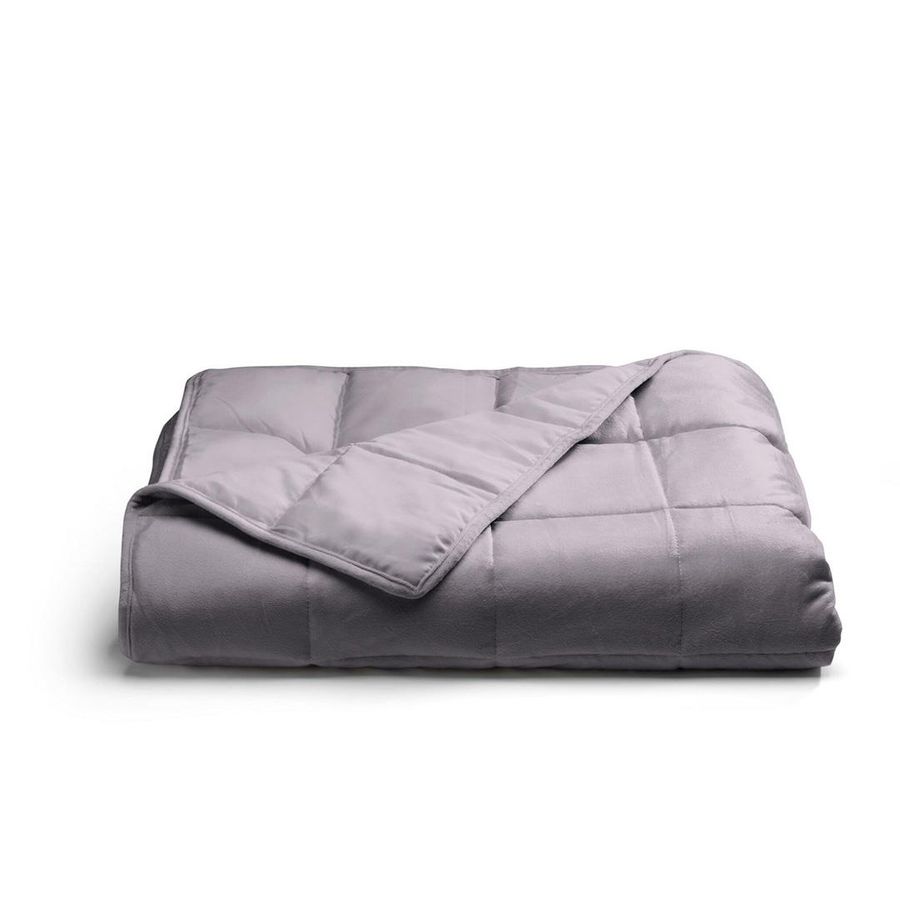
While it would be lovely to imagine a world where getting your child to sleep more soundly is as easy as investing in a weighted blanket, we aren't quite there yet.
Weighted blankets are typically 15 pounds or more and filled with a material such as plastic pellets. The theory is that the extra pressure that comes from a heavier blanket could help kids sleep for a longer period, fall asleep faster, or wake less often. But research hasn’t proven they’re effective in children.
Here's what you need to know before buying a weighted blanket:
1. We don't know if they really work.
When kids ages 5 to 16 with both autism and severe sleep problems slept under a weighted blanket, neither their quality of sleep nor behavior improved, an American Academy of Pediatrics study found. The same goes for kids without autism: No research has shown that these blankets help children sleep better than with traditional ones.
- RELATED: Is Melatonin Safe for Kids?
2. They could be dangerous to use when a child is asleep.
You might think that a weighted blanket could provide a sense of comfort to your child if he's struggling to fall or stay asleep—some people describe it as feeling like a hug. Most blankets come with an age range of 4 years and up, but Dr. Landa doesn't recommend that any kids use them while sleeping, as they can be too heavy for a child to move. If your little one can't push his blanket out of the way in the night, his air access may be limited, which could lead to suffocation. A blanket that's too heavy can also decrease your child's circulation and affect his heart rate or blood flow.
- RELATED: Solutions for Kids’ Sleep Problems
3. It’s important to talk to your doctor first.
If you've thought about using a weighted blanket because your child is showing signs of a behavioral issue like anxiety or hyperactivity, check with your pediatrician.
"Parents should only use a weighted blanket on their child if an occupational therapist, who has training in the area, has recommended it," Dr. Landa says. (Your kid's doc would refer you to an O.T.) Plus, a blanket should be bought only from a reputable distributor, should come with a list of precautions, and should have higher safety standards than other blankets on the market.
- RELATED: How to Sleep Train Toddlers and Big Kids
